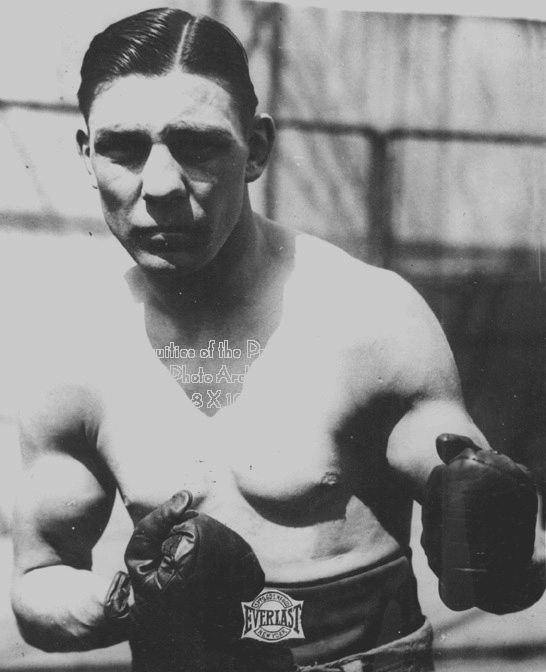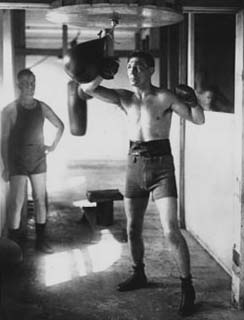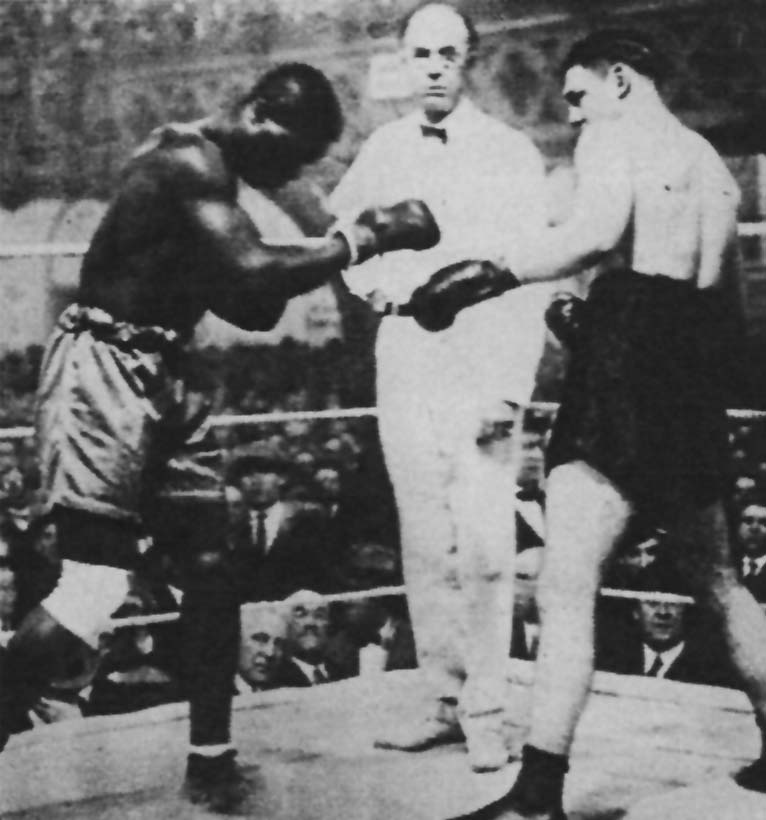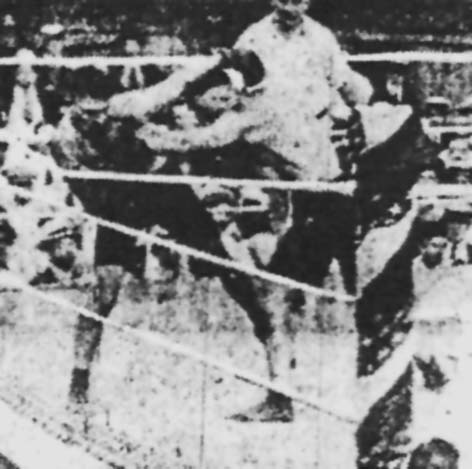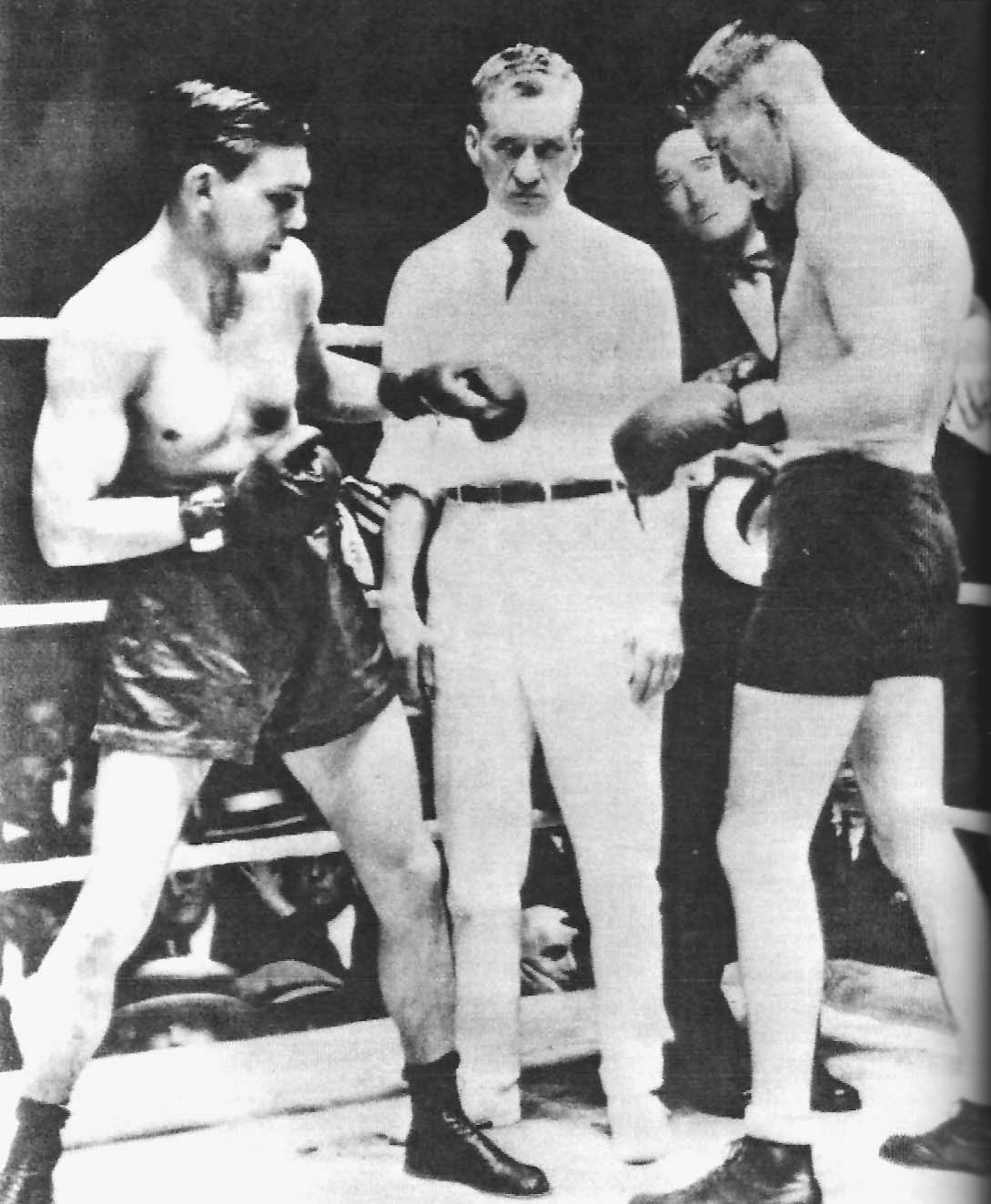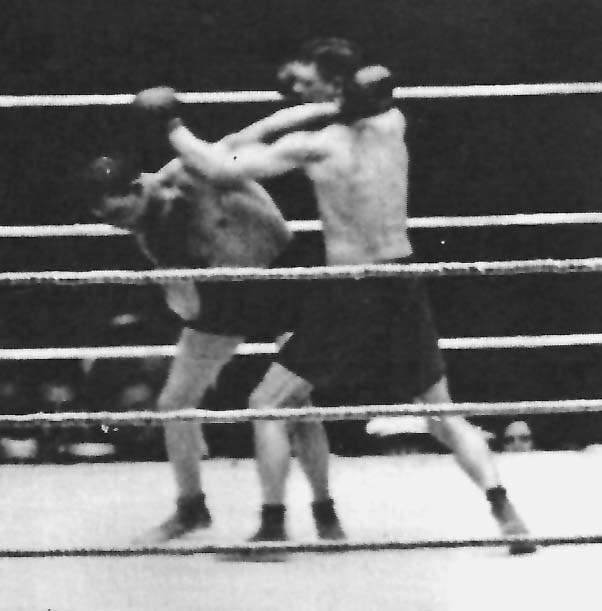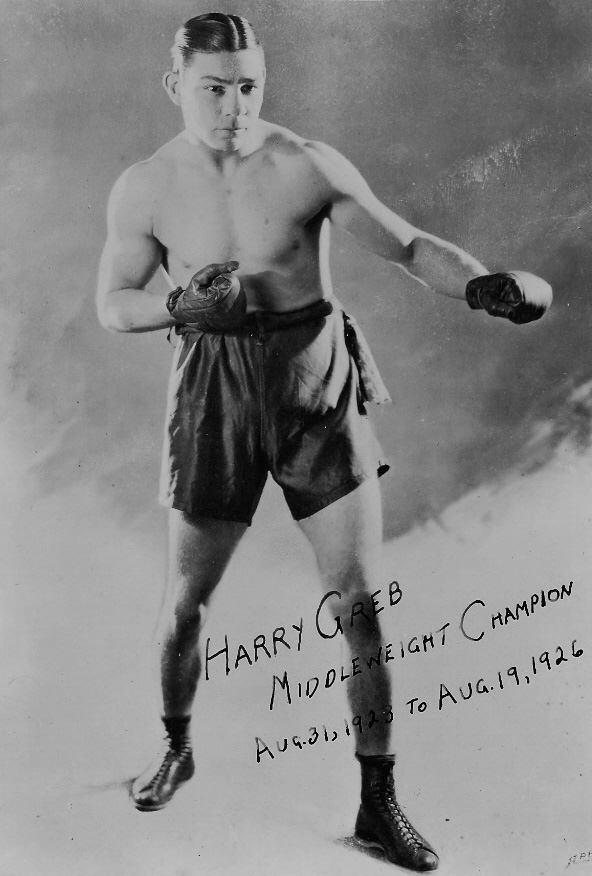|
The famous
boxing historian, Gilbert Odd (1989 p 55) stated, "Greb was no gentleman
in action: a master of ruthless in-fighting, he used every trick to wear
down his opponents. He rarely took a lot of punishment, as his rivals
were usually busy defending themselves from the torrent of punches he
tossed from all angles."
Patrick Myler, the excellent writer, described him (1998 p 128), "One of
the fight game's legendary characters, Harry Greb had only a passing
acquaintance with the Marquis of Queensberry Rules. He was a rough,
tough battler whose style was based on a high workrate, more than a
single pay-off punch."
Paxton (2009 p 74) wrote, "His ability to defeat all comers, regardless
of size, is one of the incredible accomplishments in fistic history and
establishes Greb as one of the greatest boxers who has ever lived. He
didn't slowly move up in weight over the years and gradually fight
heavier men as he got older and heavier. Greb would weigh around 160
pounds and fight a middleweight one day, beat a heavyweight the next
week, then a middleweight a week later, then a light heavyweight after
that."
Lardner once recorded that a man is truly famous "... when many things
both true and untrue are said about him - in other words, when a
mythology begins to grow up around him ..." Paxton (2009 pp
216-225) elaborates and points out five major myths about Greb - (1) that he never
trained, (2) that he was a heavy drinker, (3) that he was a dirty fighter,
(4) that his name wasn't Greb and (5) that he had a glass eye. But, read
on, and enjoy the words that have been used by observers to describe the
raging fighter, Greb, true or untrue, in the ring and out. |
